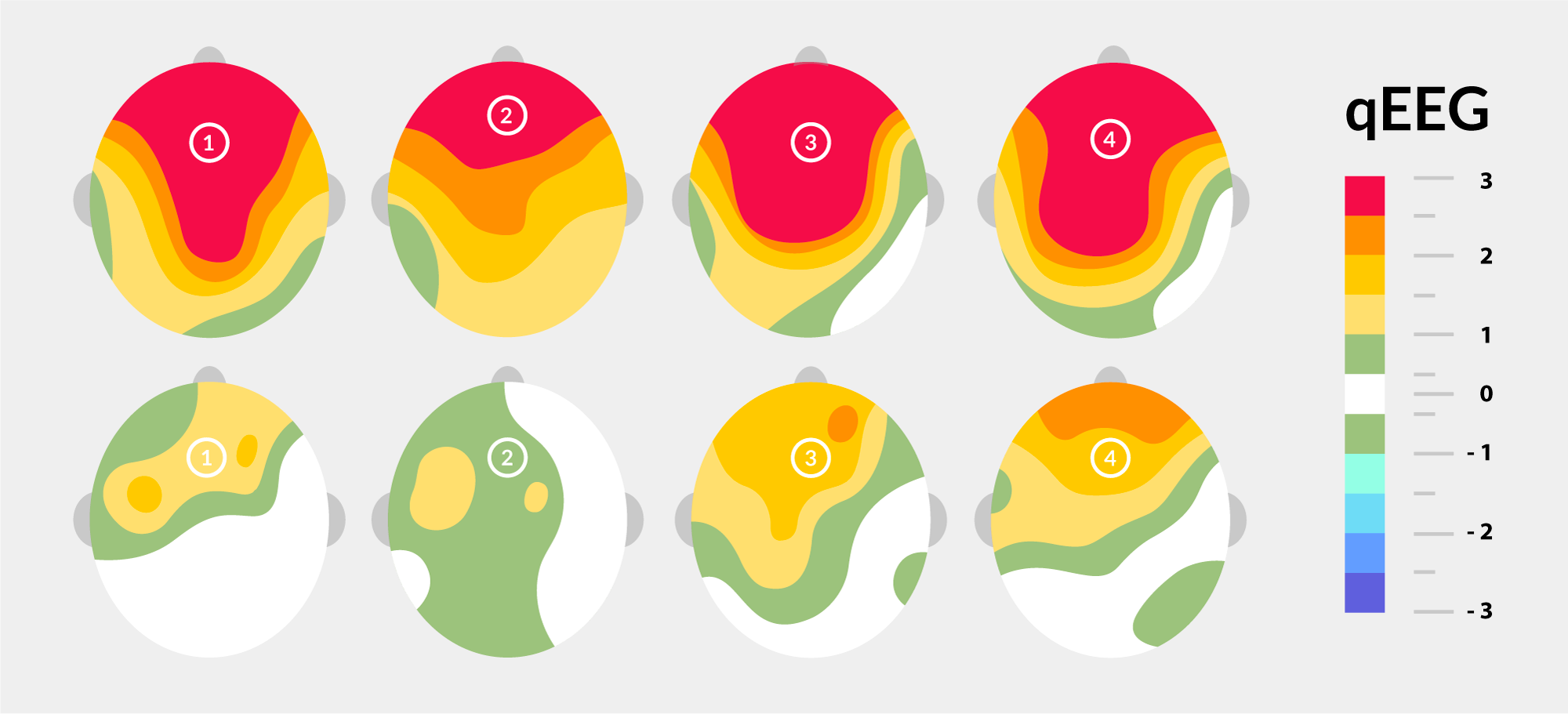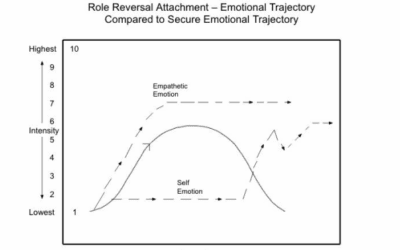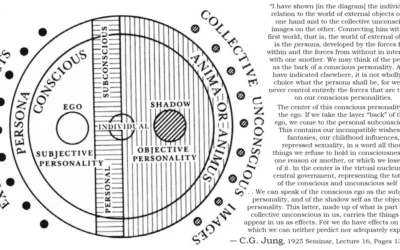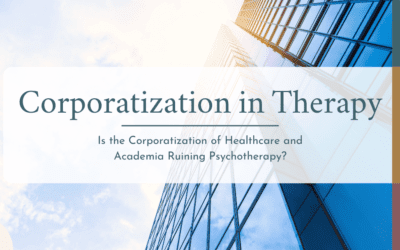Mary Main's Groundbreaking Attachment Research Mary Main (1943-2023) transformed our understanding of attachment through her revolutionary contributions to developmental psychology and attachment research. As a protégé of Mary Ainsworth at Johns Hopkins University, Main expanded attachment theory beyond its original three categories by discovering a fourth pattern known as disorganized/disoriented attachment and developing the Adult Attachment Interview (AAI) to assess attachment representations across...
Evidence-Based Practice : Balancing Research and Clinical Wisdom

Navigating the Complexities of Modern Therapeutic Practice in Birmingham
Welcome to Taproot Therapy Collective’s thoughtful exploration of evidence-based practice (EBP) and its critiques in contemporary mental health care. As Birmingham’s leading integrative therapy practice, we recognize that excellent therapeutic outcomes require both rigorous attention to research evidence AND deep appreciation for the art, intuition, and individualized care that make therapy truly transformative.
Understanding Evidence-Based Practice in Mental Health
Our Evidence-Based Practice and EBP Criticism blog category examines the complex landscape of research-informed therapy while critically evaluating the limitations, biases, and cultural considerations that shape how we apply research findings to real-world clinical practice. We explore how thoughtful practitioners integrate scientific evidence with clinical expertise, client preferences, and contextual factors to provide the most effective and ethical care possible.
This nuanced approach recognizes that while research provides invaluable guidance for therapeutic interventions, the human complexity of mental health requires practitioners who can think critically about research limitations, cultural biases, and individual differences that may not be captured in standardized treatment protocols.
The Foundation and Evolution of Evidence-Based Practice
Historical Context and Development
Understanding how EBP emerged and evolved in mental health:
- Origins in evidence-based medicine and the Cochrane Collaboration
- The American Psychological Association’s adoption of evidence-based practice guidelines
- How managed care and healthcare economics influenced EBP implementation
- Research from the Cochrane Mental Health Group and National Institute for Health and Care Excellence (NICE)
The Three Pillars of Evidence-Based Practice
Exploring the foundational components as defined by the American Psychological Association:
- Best Research Evidence: Understanding study designs, meta-analyses, and clinical trials
- Clinical Expertise: The role of practitioner knowledge, experience, and clinical judgment
- Client Values and Preferences: Honoring individual goals, cultural context, and personal choice
- Integration insights from University of Alabama at Birmingham School of Medicine evidence-based practice initiatives
Randomized Controlled Trials and Research Hierarchy
Examining the gold standard of psychological research and its applications:
- Understanding RCT methodology and statistical significance
- The research hierarchy: systematic reviews, meta-analyses, and individual studies
- How research findings translate to clinical practice settings
- Insights from Harvard T.H. Chan School of Public Health methodology research
Legitimate Criticisms of Evidence-Based Practice
Cultural and Diversity Limitations
Examining how traditional EBP research often fails to represent diverse populations:
- Research Bias: Historical overrepresentation of white, middle-class, college-educated participants
- Cultural Adaptation: How evidence-based treatments may need modification for different cultural groups
- Language and Communication: Barriers in research design that exclude non-English speakers
- Systemic Racism in Research: How historical medical racism affects trust and participation
- Research from National Institute on Minority Health and Health Disparities
The “One-Size-Fits-All” Problem
Exploring how standardized protocols may not account for individual complexity:
- Comorbidity Challenges: Most research excludes clients with multiple diagnoses, yet most real-world clients have complex presentations
- Trauma and Context: How evidence-based treatments may not adequately address trauma history and environmental factors
- Neurodiversity Considerations: Adapting EBP approaches for autistic individuals, ADHD, and other neurological differences
- Insights from Stanford Medicine 25 Precision Medicine Initiative
Economic and Industry Influences
Critically examining how financial factors shape research priorities:
- Pharmaceutical Influence: How drug company funding affects research questions and publication
- Insurance Industry Impact: How managed care preferences influence which treatments are studied and approved
- Academic Incentives: Publication bias and the pressure to produce significant results
- Access and Equity: How EBP implementation can create barriers for underserved communities
- Analysis from The Cochrane Collaboration on research bias
Methodological Limitations
Understanding inherent challenges in mental health research:
- Placebo and Control Group Ethics: Ethical challenges in withholding potentially helpful treatments
- Measurement Challenges: Difficulty quantifying subjective experiences like meaning, hope, and spiritual growth
- Treatment Fidelity: How strictly following manuals may miss opportunities for therapeutic connection
- Long-term Follow-up: Most studies focus on short-term outcomes, missing long-term relapse and growth patterns
Birmingham’s Approach to Integrative Evidence-Based Practice
At Taproot Therapy Collective, we embrace a sophisticated understanding of evidence-based practice that honors both research findings and the complex realities of therapeutic work in Birmingham’s diverse community:
Cultural Responsiveness: We adapt evidence-based treatments to honor the cultural backgrounds, values, and communication styles of Birmingham’s African American, Latino, LGBTQ+, and other diverse communities.
Trauma-Informed Integration: Recognizing that Birmingham’s history with civil rights trauma, industrial accidents, and economic displacement affects how residents respond to standardized treatments.
Community Context: Understanding how poverty, housing instability, and systemic oppression in Birmingham require modifications to evidence-based protocols designed for more privileged populations.
Regional Healing Traditions: Integrating evidence-based approaches with Southern storytelling traditions, faith-based practices, and community healing methods.
Alternative and Complementary Approaches to Evidence-Based Practice
Practice-Based Evidence
Exploring how clinical practice generates its own valuable data:
- Single-Case Experimental Designs: How individual therapists can systematically study their own practice
- Clinical Outcome Measurement: Using standardized assessments to track individual client progress
- Qualitative Research Methods: Understanding client experiences through narrative and phenomenological approaches
- Community-Based Participatory Research: Involving community members in designing and conducting research
- Insights from Society for Psychotherapy Research
Precision and Personalized Mental Health
Examining emerging approaches to individualized treatment:
- Genetic and Biological Markers: How genetic testing may inform medication and therapy choices
- Digital Phenotyping: Using technology to track mood, behavior, and environmental factors
- Machine Learning Applications: AI-assisted treatment matching and outcome prediction
- Biomarker Research: Physiological indicators that may guide treatment selection
- Research from National Institute of Mental Health NIMH precision medicine initiatives
Indigenous and Traditional Healing Integration
Exploring how traditional healing practices offer evidence different from Western research:
- Traditional Ecological Knowledge: How indigenous healing practices demonstrate effectiveness over centuries
- Ceremony and Ritual: Evidence for community-based healing approaches
- Holistic Assessment: Understanding wellness beyond symptom reduction
- Intergenerational Healing: Approaches that address historical and cultural trauma
- Research from University of New Mexico Center for Indigenous Mental Health Research
Research-Based Insights from Leading Critical Institutions
We regularly incorporate balanced perspectives from:
- Stanford University School of Medicine critical methodology research
- Johns Hopkins Bloomberg School of Public Health health equity and research bias studies
- University of California San Francisco precision medicine and individual differences research
- Harvard Medical School cultural psychiatry and global mental health initiatives
- Vanderbilt University health services research and implementation science
Practical Integration in Clinical Practice
Critical Evaluation Skills for Practitioners
Developing sophisticated approaches to reading and applying research:
- Statistical Literacy: Understanding effect sizes, confidence intervals, and clinical significance
- Study Design Analysis: Recognizing strengths and limitations of different research methodologies
- Cultural Relevance Assessment: Evaluating whether research findings apply to specific client populations
- Bias Recognition: Identifying potential conflicts of interest and methodological limitations
Client-Centered Evidence Integration
Balancing research guidance with individual client needs:
- Collaborative Treatment Planning: Involving clients in decisions about evidence-based vs. alternative approaches
- Outcome Monitoring: Using measurement-based care to track individual response to interventions
- Treatment Adaptation: Modifying evidence-based protocols based on client feedback and cultural considerations
- Informed Consent: Helping clients understand both the evidence for and limitations of proposed treatments
Ethical Considerations in Evidence-Based Practice
Navigating complex ethical terrain in research-informed practice:
- Access and Justice: Ensuring that emphasis on evidence-based treatments doesn’t create barriers for marginalized communities
- Cultural Humility: Recognizing when Western research paradigms may not apply to diverse client populations
- Innovation vs. Safety: Balancing cutting-edge approaches with established safety protocols
- Transparency: Being honest with clients about research limitations and practitioner expertise
Connect with Our Evidence-Based Practice Community
For deeper exploration of these critical issues in mental health research and practice, check out more on the Discover + Heal + Grow Taproot Therapy Collective blog and podcast where we regularly feature conversations with researchers, clinicians, and advocates working to improve the integration of evidence and practice wisdom.
Subscribe to our channels for ongoing insights:
- 🎥 GetTherapyBirmingham YouTube Channel – Weekly discussions on research, practice, and clinical decision-making
- 🎧 Taproot Therapy Collective Podcast – Expert interviews on evidence-based practice, research criticism, and therapeutic innovation
- 📱 Follow us on Instagram for daily evidence-based tips and critical thinking about mental health research
- 💼 Connect on LinkedIn for professional discussions on clinical research and practice integration
- 🗺️ Find us on Google Maps for accessible, evidence-informed therapy services
- 💬 Join our Reddit community for discussions on research literacy and clinical practice
Who Benefits from Understanding EBP and Its Criticisms?
This blog category serves:
- Mental health practitioners seeking to develop sophisticated research literacy and clinical judgment
- Graduate students learning to critically evaluate research and integrate findings into practice
- Healthcare administrators making decisions about treatment protocols and clinical guidelines
- Community advocates working to ensure equitable access to effective mental health treatments
- Birmingham residents wanting to understand how research influences their therapy options
- Researchers interested in improving the relevance and applicability of mental health research
- Anyone curious about the intersection of science, practice, and social justice in mental health
Featured Article Categories
Our Evidence-Based Practice and EBP Criticism blog includes:
- Research Literacy – Developing skills to critically read and evaluate mental health research
- Cultural Adaptation – Modifying evidence-based treatments for diverse populations
- Practice-Based Evidence – Generating knowledge through systematic clinical practice
- Measurement-Based Care – Using outcomes data to guide individual treatment decisions
- Implementation Science – Understanding how research findings translate to real-world settings
- Health Equity – Addressing disparities in access to evidence-based treatments
- Professional Ethics – Navigating ethical complexities in research-informed practice
- Innovation and Tradition – Balancing cutting-edge research with time-tested therapeutic wisdom
Specialized Training and Consultation
Research Literacy Workshops: Training for mental health practitioners in critical evaluation of research literature, statistical interpretation, and evidence integration.
Cultural Adaptation Consultation: Helping agencies and practitioners modify evidence-based treatments for specific cultural communities in Birmingham and beyond.
Practice-Based Evidence Training: Teaching clinicians to systematically study their own practice and contribute to the evidence base.
Supervision in Evidence-Based Practice: Advanced clinical supervision focusing on sophisticated integration of research, clinical expertise, and client preferences.
Collaborative Research Initiatives
Community-Based Research Partnerships: Working with Birmingham community organizations to conduct research that addresses local mental health priorities and honors community wisdom.
Practice Network Studies: Collaborating with local therapists to study treatment outcomes and effectiveness in real-world Birmingham practice settings.
Cultural Adaptation Research: Studying how evidence-based treatments can be modified for specific populations served in the Birmingham metropolitan area.
Start Your Evidence-Informed Journey Today
Excellent mental health care requires both scientific rigor AND deep appreciation for the art of therapy, individual differences, and cultural wisdom. Our Birmingham-based therapists at Taproot Therapy Collective are trained to thoughtfully integrate research evidence with clinical expertise and your unique needs, values, and cultural background.
Contact Taproot Therapy Collective: 📍 2025 Shady Crest Dr. Suite 203, Hoover, AL 35216
📞 (205) 598-6471
🌐 www.GetTherapyBirmingham.com
🎧 Podcast: gettherapybirmingham.podbean.com
We provide therapy that honors both scientific evidence and the irreplaceable human elements of healing—clinical wisdom, cultural responsiveness, and individualized care.
Discover + Heal + Grow with Taproot Therapy Collective – Birmingham’s practice for evidence-informed, culturally responsive, and ethically sophisticated mental health care.
The Prescient Wisdom of Dr. Shoma Morita: Metacognition, Eastern Philosophy, and the Limits of Psychopharmacology
Evidence Based Practice and Research Psychology, History of Psychotherapy, Psychotherapy Biographies: Historical Figures in the History of Psychology
The Prescient Wisdom of Dr. Shoma Morita: Metacognition, Eastern Philosophy, and the Limits of Psychopharmacology In the early 20th century, while Western psychiatry was still grappling with Freudian theories and the nascent field of psychopharmacology, a Japanese psychiatrist named Shoma Morita was developing a radically different approach to mental health. His insights, rooted in Eastern philosophy yet informed by medical training, anticipated many of the developments that Western psychology would only embrace...
Revisioning Psychotherapy: Beyond the Biomedical Model to Understand Consciousness and Neural Networks
Evidence Based Practice and Research Psychology, Executive and Physician Burnout, Psychology
The Limits of the Biomedical Model in Mental Health The biomedical model has dominated mental health treatment for decades, offering a structured framework for categorizing psychological symptoms into discrete disorders. While this approach has provided valuable standardization for diagnosis and treatment, emerging neuroscience research reveals its fundamental limitations in capturing the true complexity of human consciousness and psychological experience. The biomedical model operates on a necessary but...
Meta-Cognition: Observing Conciousness Itself to Heal Trauma
Evidence Based Practice and Research Psychology, Recovering from Abuse, Self Help and Personal Development, Somatic Experiencing In Alabama, Trauma Treatment in Alabama
"Pain - has an Element of Blank - It cannot recollect When it begun - or if there were A time when it was not - It has no Future - but itself - Its Infinite realms contain Its Past - enlightened to perceive New Periods - of Pain." -Emily Dickinson, Pain - has an Element of Blank (1890) In this haunting stanza, Emily Dickinson captures the timeless, all-consuming nature of deep emotional pain. When we are in the throes of anxiety, depression, or trauma, it can feel as though this state has no beginning and no end....
The Neuroscience of Trauma and Psychotherapy: An Integrative Perspective
Evidence Based Practice and Research Psychology, Neuroscience and the Brain for Therapists, Recovering from Abuse, Trauma Treatment in Alabama
Key Points: Different psychotherapy modalities target distinct brain networks and memory systems, leading to varying treatment outcomes for different types of trauma. The triune brain model (MacLean) and research on emotional memory (LeDoux) and lateralization of brain function (Gazzaniga) provide a neuroscientific framework for understanding the impact of trauma on the brain. Personality factors and individual differences in brain organization, as revealed by qEEG brain mapping, influence the subjective...
New Frontiers in Brain-Based Therapies for Trauma
Evidence Based Practice and Research Psychology, Lifespan integration in Alabama, Recovering from Abuse, Therapeutic Approaches and Techniques for Therapists, Therapy and Crisis Intervention for College Students in Alabama, Trauma Treatment in Alabama, Trauma, Depth Psychology, and Social Work, Understanding Neurodivergence and Neurodiversity in Therapy
What are Newer Brain-Based Therapies for Trauma? In recent years, there has been a surge of interest and research into novel therapies that target the brain and nervous system to treat the effects of psychological trauma. These emerging approaches leverage new insights from neuroscience to heal trauma in ways that go beyond traditional talk therapy. By working with the brain and body, they aim to resolve trauma stored in the nervous system and transform painful memories. This article will explore several of the...
Theodore M. Porter and the Critique of Quantification:
Evidence Based Practice and Research Psychology, Metamodernism and Deconstruction, Psychology, Psychotherapy Biographies: Historical Figures in the History of Psychology
Implications Theodore Porter's Thinking in Psychotherapy and Mental Health Who is Theodore Porter? In his seminal work "Trust in Numbers: The Pursuit of Objectivity in Science and Public Life," historian of science Theodore Porter offers a compelling analysis of the rise and cultural authority of quantitative methods in modern society. Porter challenges the prevailing assumption that the power and prestige of numbers derive solely from their success in the natural sciences. Instead, he argues that to fully...
Can Psychotherapy Survive Staying Seperated from Anthropology and Philosophy?
Comparative Religion for Therapy, Depth Psychology Approaches and Techniques, Evidence Based Practice and Research Psychology, Trauma, Depth Psychology, and Social Work
Should Psychotherapy Ponder the Mysteries of Philosophy and Anthropology? The specialized and fragmented nature of modern psychology has led to an abstracted and decontextualized view of the self, one that is disconnected from the embodied, embedded, and enactive dimensions of human experience. By drawing upon the insights of anthropology, philosophy, and the study of ancient religious traditions, we can begin to re-imagine psychology as a more holistic and integrative discipline, one that recognizes the deep...
The Failure of Evidence-Based Incentive Structure
Evidence Based Practice and Research Psychology, Psychology
Flaws of the Modern Medical Research Establishment For as long as I can remember, I've suffered from chronic ear and sinus infections. The cycle is always the same - an ear infection treated with antibiotics migrates to my sinuses, causing a sinus infection. When I treat the sinus infection, it moves back to the other ear. This pattern has plagued me since childhood, making me intimately familiar with the misery of constant congestion. From a young age, doctors routinely prescribed oral decongestants, insisting I...
Cognitive Behavioral Therapy: The Rocket-Finned Civic of the Therapy World
Evidence Based Practice and Research Psychology, Models of Psychotherapy
Cognitive Behavioral Therapy? In the 1990s, a peculiar trend emerged among car enthusiasts: transforming humble Honda Civics into pseudo-supercars by gluing on rocket fins, spoilers, and other garish modifications. The goal was to mimic the look of elite Ferraris and Lamborghinis without the matching performance. In many ways, this fad parallels the trajectory of Cognitive Behavioral Therapy (CBT) in the world of psychotherapy. At its core, CBT is built on the practice of linking behaviors to emotions, and...
Psychotherapy’s Feuding Founders
Evidence Based Practice and Research Psychology, History of Psychotherapy, Mental Health and Psychotherapy Resources in Alabama, Neuroscience and the Brain for Therapists, Phenomenology and Existential Psychology
Ego, Ideology, and the Battle for the Soul of the Profession From the outside, psychotherapy often appears to be a staid and sober enterprise – a science of the mind dedicated to the rational amelioration of human suffering. But a closer examination of the field's history reveals a far more tumultuous and fractious reality. Beneath the calm veneer of clinical respectability lies a roiling cauldron of clashing personalities, competing paradigms, and bitter doctrinal disputes. Far from a detached, objective...
When Evidence Based Practice Goes Wrong
Alternative Medicine and Holistic Health, Evidence Based Practice and Research Psychology, History of Psychotherapy
Balancing Evidence and Experience: Lessons from the STAR*D Scandal The Tightrope of Objective and Subjective in Psychotherapy For decades, psychotherapy has walked a tightrope between the worlds of scientific research and clinical practice. On one side, a growing emphasis on evidence-based models promises therapeutic approaches grounded in objective data. On the other, skilled clinicians rely on hard-earned wisdom, theoretical savvy, and a nuanced reading of each client's unique needs. Binding these worlds...
Healing the Modern Soul Part 3
Evidence Based Practice and Research Psychology, Phenomenology and Existential Psychology, Psychology of Mystics, Gurus, and Spiritual Philosophers
Healing the Modern Soul is a series about how clinical psychology will have to change and confront its past if it is to remain relevant in the future. Part 1 Part 2 Part 3 Part 4 Healing the Modern Soul Appendix Suffering Without Screaming In the first part of this series, we explored the concept of the modern world as a simulacrum, a copy without an original, and how this phenomenon is related to the increasing emphasis on hyper-rationality and objectivity in our culture. We also discussed how...
Healing The Modern Soul Part 2:
Evidence Based Practice and Research Psychology, Phenomenology and Existential Psychology, Understanding Neurodivergence and Neurodiversity in Therapy
The Philosophy of Psychotherapy Healing the Modern Soul is a series about how clinical psychology will have to change and confront its past if it is to remain relevant in the future. Part 1 Part 2 Part 3 Part 4 Healing the Modern Soul Appendix The Corporatization of Healthcare and Academia: A Threat to the Future of Psychotherapy The field of psychotherapy is at a critical juncture, facing numerous challenges that threaten its ability to effectively address the complex realities of the human...
Healing the Modern Soul: Finding Meaning in a World of Broken Images
Evidence Based Practice and Research Psychology, Phenomenology and Existential Psychology, Psychology of Conspiracy Theories, Psychology of Mystics, Gurus, and Spiritual Philosophers
Navigating Uncertainty, and Finding Meaning in a Fractured World Our era is characterized by the dominance of hyper-rationality and the relentless pursuit of objective truth, production, accomplishment and consumption. The human psyche finds itself adrift in a sea of fragmented images and disconnected meanings as the previous myths that used to give us purpose are exposed as hollow or erroneous. I see patients everyday that describe this phenomenon but not in these words. It is as if they are saying that...
Is the Corporatization of Healthcare and Academia Ruining Psychotherapy?
Evidence Based Practice and Research Psychology, Neuroscience and the Brain for Therapists
Key Points and Main Ideas: Shift in psychiatric practice from hour-long psychotherapy sessions to brief medication-focused appointments. Criticism of the current trend of diagnosing and prescribing medication without thorough assessment of patients' life circumstances. Economic pressures forcing psychiatrists and psychologists into more lucrative areas of practice, away from traditional psychotherapy. Increased control of mental healthcare by insurance companies and medical directors who often lack experience in...
















